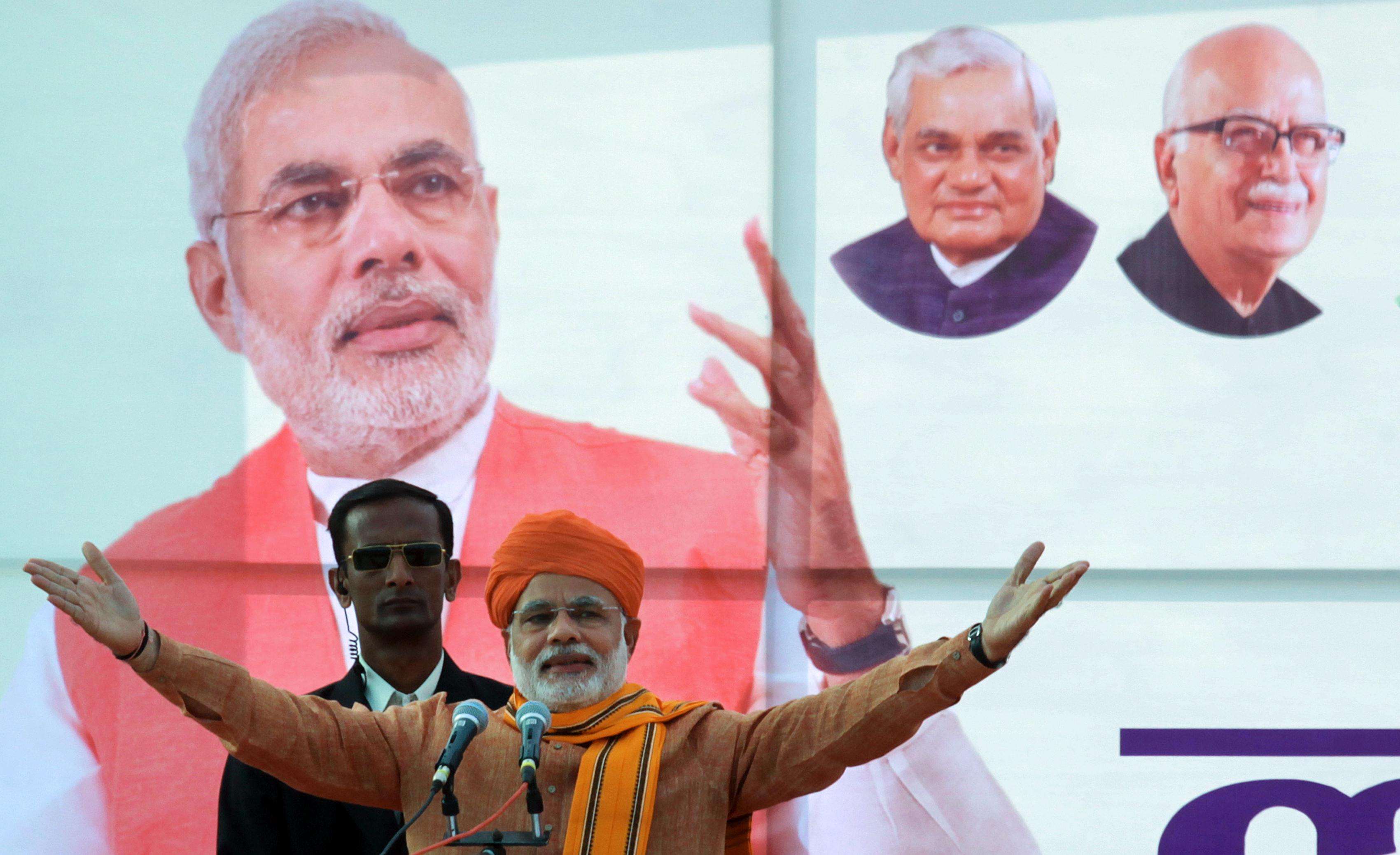Over the weekend, India’s ruling Congress party was trounced in state elections by the opposition BJP. Heading into national elections this spring—the largest democratic elections in the world—this is obviously a worrying sign for Congress’s Rahul Gandhi, heir to the Nehru-Gandhi political dynasty that has dominated the country’s politics since independence. The BJP’s success next year isn’t guaranteed. The BJP also looked strong in 2008* before it lost badly to Manmohan Singh and the Congress party the following year. But if the election were held today, it seems likely that Narendra Modi, BJP leader and chief minister of the state of Gujarat, appears ever more likely to be India’s next prime minister.
This would be a pretty awkward scenario for the United States, since, as John Hudson of Foreign Policy wrote yesterday, Modi is banned from entering the United States. The ban is due to his role in the 2002 Gujarat riots, in which about 1,000 people—most of them Muslims—were killed in three days of communal violence. Though he has been cleared of any wrongdoing in court, Modi has been accused by many of failing to stop the riots and even playing a role in provoking them with Hindu nationalist rhetoric. Modi was denied a diplomatic visa in 2005 on the grounds that his actions constituted a threat to religious freedom, and an existing business visa was revoked.
The State Department hasn’t said what it will do about its Modi problem should he be elected, but it seems safe to assume that it will work out a way for the leader of the world’s third-largest economy and an important U.S. ally to visit Washington. It’s worth keeping in mind that the late Nelson Mandela was on a U.S. terrorist watch list until 2008 and needed a special waiver from the State Department to visit Washington, even as president. There are ways around this kind of thing.
Modi has worked hard to rebrand a party known for Hindu nationalism into a voice for the business community and India’s emerging middle class, touting the free-market, small-government “Gujarat model” to an electorate increasingly frustrated with corruption and bureaucracy. In an unlikely transformation, the populist, hardline nationalist son of a tea stall owner has become the darling of the country’s business community. But his tricky legal status in the United States is one factor making it hard for him to shake the ghosts of 2002.
*Correction: The original version of this post inaccurately said that 2008 polls had predicted a BJP victory in the national election.
